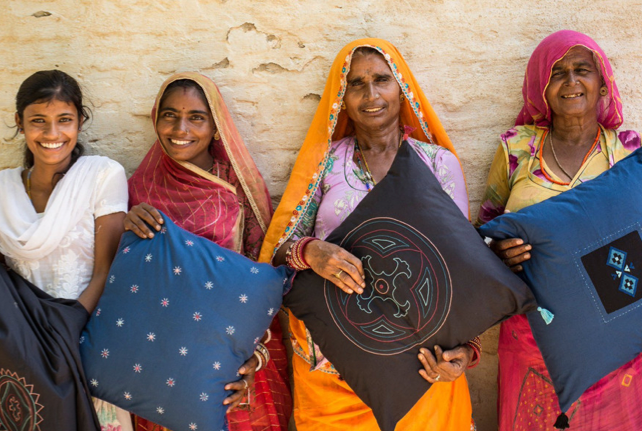What is the problem the social business is solving?
Over 105 million artisans and workers earn their livelihoods from India’s textile and handicraft sector. For every artisan, an average of 5-6 family members are dependent on the craft business for daily sustenance. Over the past 30 years, the number of Indian artisans has decreased by 30% due to loss of access to existing markets, declining skills and difficulty catering to new markets, resulting in urban migration to search for employment.
How does the social business solve this problem?
RangSutra tackles the key challenges faced in the handicraft sector by providing market linkages and capacity building (through design inputs, access to working capital) to artisans, out of which over 70% are women. RangSutra works with 2,000+ artisans that are direct shareholders of the social business, from villages and small towns across India – including in Rajasthan, Eastern UP, Kashmir, Manipur and West Bengal. RangSutra creates a safe working environment for these women by organising trainings for home-based small producer groups of artisans. Through RangSutra’s intervention, the income for these women increases from Rs. 500-1,000 per month earned to Rs.3,000-5,000 per month.
How does the social business generate revenue?
Materials are provided to the artisans through RangSutra’s wide range of suppliers. The artisans then develop the craft products, and RangSutra sells them through their B2B and B2C channels. RangSutra has corporate retail partnerships with IKEA and FabIndia, which represent over 85% of total B2B sales. Their B2C channels include brick-and-mortar stores, shops within multi-brand outlets and e-commerce channels through RangSutra’s own website or 3rd party e-commerce partners.






